This Man Raised His Credit Score From 550 To 800. Here's How.

Sam Price, now 44, can trace his credit problems back to college.
On one hand, he said, he lacked basic personal finance knowledge. “I didn’t know how to balance a checkbook. I didn’t know the proper use of credit,” Price said. On the other hand, he didn’t want to confront his money management issues. “I was very careless with my money.”
Price said that when he got his hands on his first credit card, the limit was only about $500 ― hardly enough to get in any real trouble. But once he established good credit with that card, the offers started rolling in. “That really started the problem for me. I began to juggle credit … there was something that I’d want and I’d go ahead and buy it and worry about it later.”
Stuck In A Cycle Of Debt
A few years after college, Price dug himself into about $15,000 in credit card debt. “Back in those days, there were always new offers in the mail where you could just roll over debt for an introductory 0 percent APR. I just played the game for so long and rolled debt over,” he said.
But then Price lost his job and was unemployed for several months. With no emergency fund in the bank, he began losing at that game. “I didn’t have any savings to fall back on, so I started spending more just to live,” Price said. It got to the point where he couldn’t afford to make his monthly minimum payments.
“When I could no longer apply for new credit, I missed the first month,” Price said. Soon after, he missed the second. And then the third.
“The right thing to have done would have been to call the credit card companies and try to work out some kind of deal,” he said. But unfortunately he took the opposite approach. “I ran from the problem. When the credit card companies would call, I just wouldn’t pick up and let it go to voicemail. I would never call them back.”
Eventually, those credit card bills became charge-offs, and soon it was debt collectors calling instead. But if you had asked him at the time, Price would have told you he had it under control. “There was not a point early on when I just faced up and dealt with my problems. That would take me looking in the mirror and saying, ‘Look, you’re messing up,’ so I just kept avoiding the problem.”
The Turning Point
Eventually, Price decided he had to turn things around. Why? Like many great stories, Price said, there was a girl.
“I had no business dating her because I didn’t have any money,” he said of his now-wife. “My credit at that point was destroyed, I was $15,000 in debt.”
But despite his financial troubles, things got serious. Soon Price knew he would propose ― except there was one problem. “It was a realization that I’ve met the person that I’d like to spend my life with, and I can’t do it because I’ve destroyed my finances.”
His future wife had no idea about the financial situation he was in.
“It’s a joke now,” he explained, “but I didn’t let her know the depths of my problem. She just thought I paid cash for everything.” The reality was that Price always paid in cash because if he put money in a bank, creditors would levy his account. At his lowest point, Price’s credit score fell to 550.
Price knew that if he wanted to have a wedding and start a life with the woman he loved, he needed to get his finances under control.
His first move: As soon as his lease was up, Price, at 28, moved back in with his parents. “Back then, that wasn’t something that was commonly done.” But since he was going to school and only had part-time work in landscaping to rely on, there wasn’t really any other option.
To increase his income, Price began taking online courses that would help him gain full-time work with overtime. “I started working as much as I could possibly work,” he said.
Finally, Price followed the debt snowball method of paying off debt, a strategy popularized by personal finance guru Dave Ramsey. “Over the course of one year, I didn’t spend anything,” Price said. “I was eating pork and beans for a year. And every nickel that I got, I put towards my debt.”
One year later, not only was the debt was gone, but Price had also saved enough for a ring and the honeymoon.
“It Was Transformational For Me”
In addition to aggressively paying off his credit card debt, Price started making more informed decisions when it came to spending.
“I started shopping for better auto insurance. I started cutting coupons. You realize there are a lot of ways you can save money if you’re just willing to take a little bit of time.”
Price also had the good sense to come clean with his fiancée about how bad his credit was during premarital counseling. Fortunately, “she was gracious enough to love me with my bad credit.”
In fact, according to Price, marrying his wife was one of the best financial decisions he’s ever made. “I went into the marriage penniless. She already had her IRA started, had a savings account. She actually brought in money to the marriage, but she also brought a good head for managing money.”
Once Price was able to build up savings, begin investing and watch his money grow in the market, “it was transformational for me,” he said. “For so many years, I saw how compounding interest led me to a very bad place. When I started seeing my money actually grow, it was just the opposite.”
And after several years of diligently paying his bills on time, his credit score finally hit 800.
In fact, Price was so inspired by his newfound financial success that when he was ready to make a career change in the pursuit of higher income, he decided to enter a field where he could use everything he learned to help others: financial planning.
The Secrets To Success
Now, as a registered investment adviser, independent insurance broker and founder of Assurance Financial Solutions, Price shares a few tips with clients who are looking to work on their own credit and get in a better financial position.
1. Pay credit cards before the due date. Usually Price would make his payments the day before the due date. But one strategy for increasing his credit score that he learned from his wife was to pay the bills as they came in. “That’s when my credit score really started to improve.”
The reason? Creditors often report your balance to the credit bureaus on a different date than your payment due date. So if you run up a large balance during the billing cycle, your credit utilization ratio could be too high even if you pay down the balance to $0 on the due date. It’s best to keep your credit utilization under 30 percent to maintain a healthy credit score ― and one way to keep it as low as possible is by making payments throughout the billing cycle.
2. Make credit cards work for you. Even though Price had a rocky past with credit, he still uses credit cards to make purchases. But now he uses them as a tool rather than a crutch.
For example, Price and his wife opened a rewards credit card that offered a complimentary trip to Disney World if they spent $2,000 within the first four months. “We put a couple of mortgage payments on the credit card and then took the family of five down to Orlando for free,” he said. The key, of course, was charging only what they could afford to pay off right away.
3. Check your credit score regularly. “I’ve tracked my credit score every few months for the past several years now,” Price said. Not only does he check his score to measure his progress, but also to keep an eye out for fraud.
Price uses a free credit score service from WalletHub, which provides users their VantageScore from TransUnion. It’s a similar service to that offered by sites such as Credit Karma and Credit Sesame, which also offer free VantageScores. If you want to check your FICO score ― the most popular credit scoring model used by lenders ― check with your credit card company, as most major banks offer the option free to cardholders.
4. Stick to a budget. The term “budget” might sound restrictive or off-putting, but really, it’s simply about having a plan for your money. And devising and sticking to a budget is how Price and his family stay on track.
“Since we’ve been married, we’ve always lived off a budget. That doesn’t mean we’re rigid… but each month, we determine what we’re going to spend our money on.” This, Price said, allows them to save money, put more toward their retirement and generally be able to afford the things that are most important to their family.
Related Coverage
5 Warning Signs Your Partner Is Guilty Of Financial Infidelity
Want Good Credit? Stop Believing These 8 Harmful Myths
8 Financial Rules You Should Break, According To Experts
Also on HuffPost

Trim your entertainment subscriptions ruthlessly.
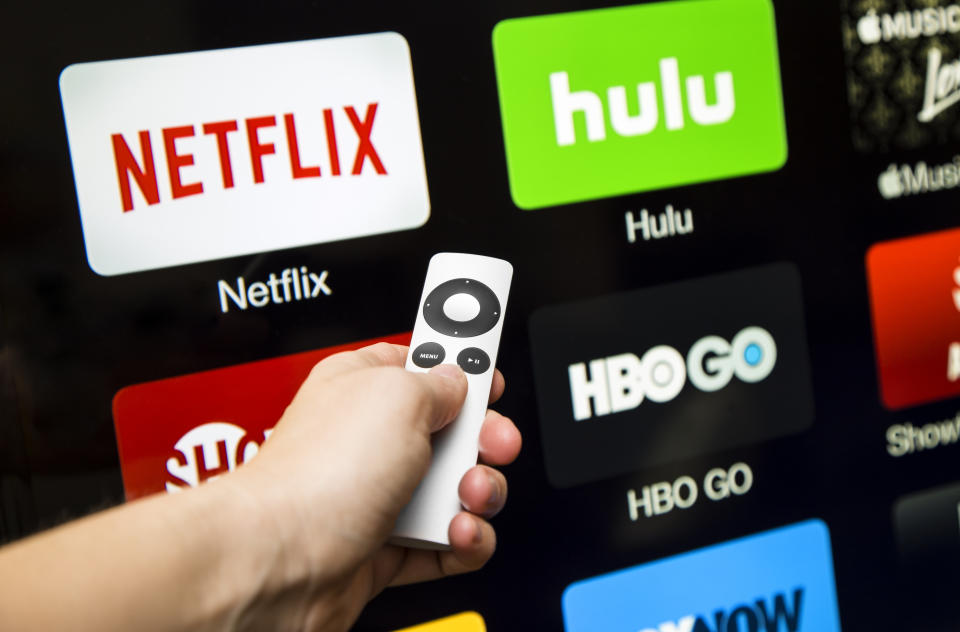
You’ll save at least $100 to $150 a year for each streaming service you drop.
Cancel stuff after the free trial period ends.

Spotify Premium will give you a month free ― and then automatically start billing you $9.99 a month. Amazon Prime gives you a free month ― before charging your credit card annually.
Mark the date the free trial ends and set a calendar reminder for yourself to cancel in time.
Cut subscriptions that are charged to your credit card.

To help you keep track of all the automatic wallet drainers, check out the app Trim. Once you sign up and connect your bank account and phone number, it analyzes your transaction history for recurring payments. Every time your account is hit for such a payment, the app sends you a text to remind you where your money is going.
Use digital coupons and price-trackers.
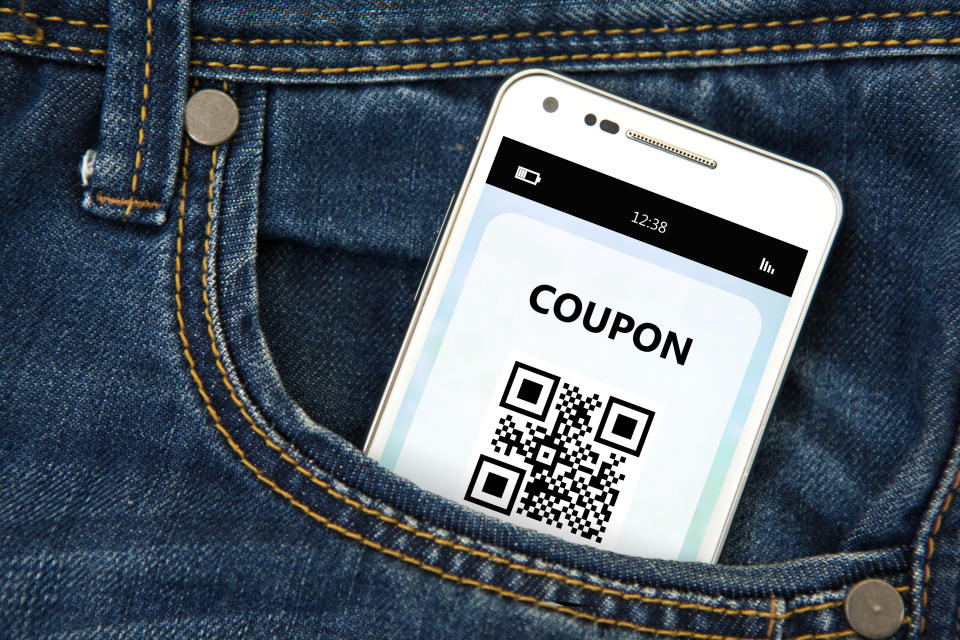
Honey, for example, is a free web browser add-on that goes through your cart when you check out online to make sure any possible coupons or discount codes have been applied. In 2017, Honey saved members over $325 million, a company spokesman told HuffPost.
Another service worth checking out is CamelCamelCamel, which keeps tabs specifically on the prices of Amazon products so you know if you’re paying high and might want to wait for the price to drop.
Work from home at least one day a week.

Think about it: When you don’t commute, you use less gas and don’t have to pay for parking or other transportation services. You can even cut back on day care for kids or pets and you might bank a tidy $660 annually just by working in your sweats once a week.
Here are five tips for negotiating a work-from-home schedule with your boss.
Drive less.

Those who decreased their total annual miles from 10,000 to 5,000 saved an average of 7 percent on their premiums, according to a 2015 study by Quadrant Information Services.
Drive more.

Stop paying others to drive things to you.

Why? Because UberEats, for example, charges $5 per delivery. If you order lunch delivered twice a week, that’s $10 a week or more than $500 a year, not including tips ― money you can put in the bank instead.
If you drive a clunker, insure a clunker.
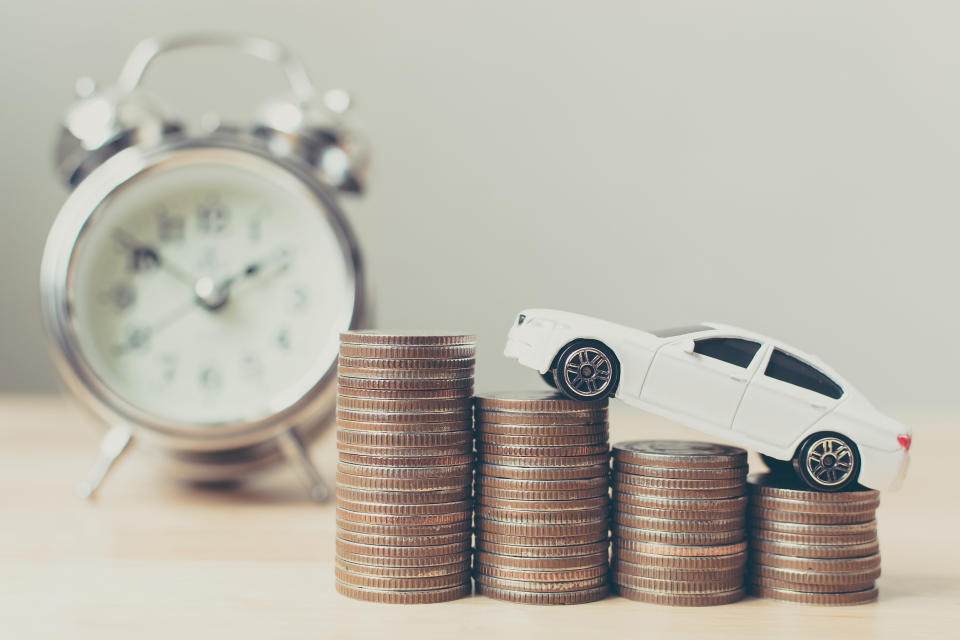
Eliminating the comprehensive and collision coverage could save you between $375 and $1,500 a year ― which could help you begin building that decent-car fund you really need.
Direct deposit your pay somewhere it’s hard to touch.
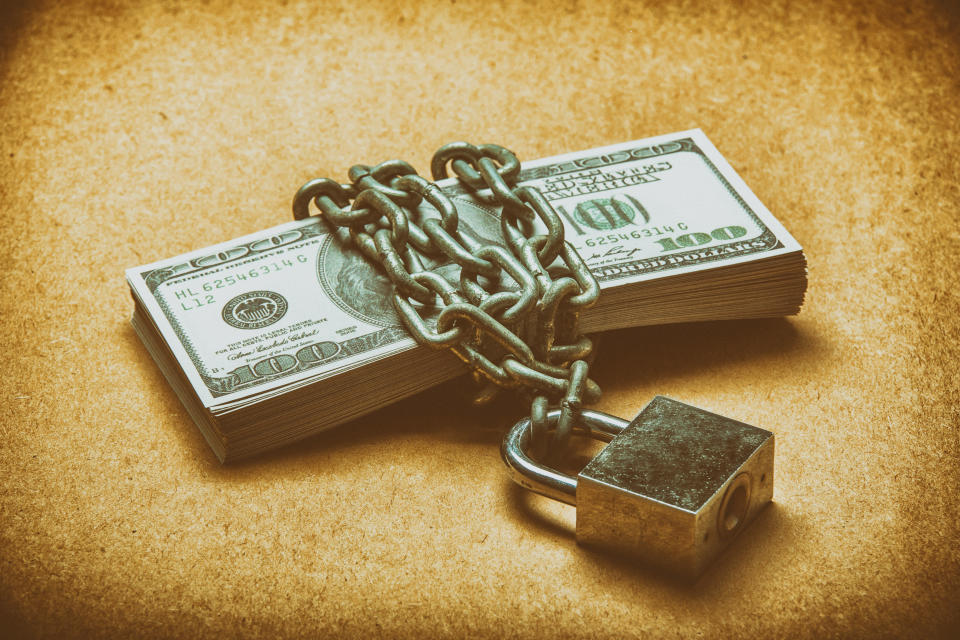
The point is that sometimes we need a stern authority and strict rules to back up our wavering self-discipline. If your employer offers multiple direct deposit options, have a certain amount from each paycheck sent directly into your savings account. If your employer offers a 401(k) plan, participate! You won’t miss what you never see.
Liberally apply the 30-day rule to your purchasing.

The trick when you see something you want is to wait 30 days to determine if you still want it. Finder’s free Icebox Chrome extension encourages you to rein in your buying impulse up to 30 days by replacing the “buy” button on websites with a “put it on ice” button. It keeps a list of items and lets you know when the “cooling period” is up, at which point maybe the urge to purchase has passed.
Renegotiate your rent.
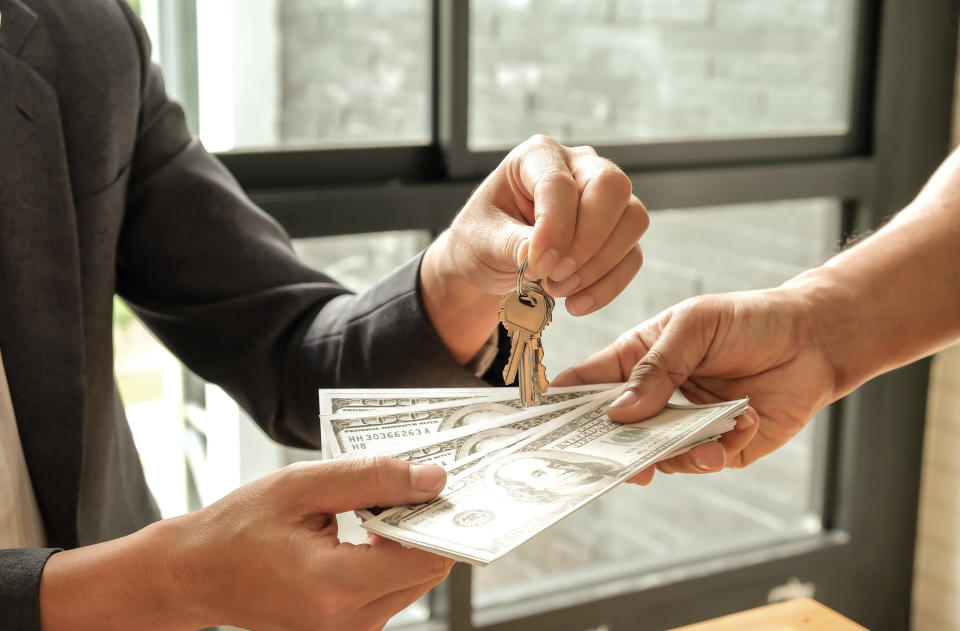
Sell before you give away.

Give away before you toss.

Stop wasting money on the lottery.
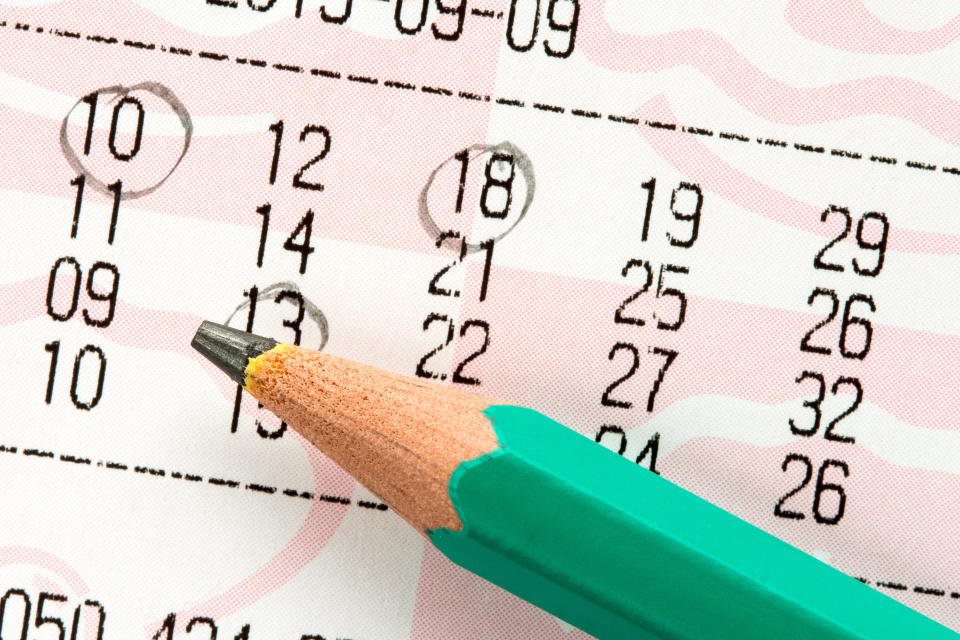
Drink the office coffee.

One easy way to make sure your effort counts is to use the Tip Yourself app to put a few dollars away every time you opt for the free java.
Don’t overbuy online services.

For example, consider all those sites designed to help you check out the new prospects you meet on online dating sites. Most sell their services “in bulk.”
If you are constantly vetting people, maybe the longer plans make sense. But if you’re using these services to check out dating prospects, will you still be looking into the backgrounds of a lot of strangers in three months?
Don’t drink and shop.

Love HuffPost? Become a founding member of HuffPost Plus today.
This article originally appeared on HuffPost.

